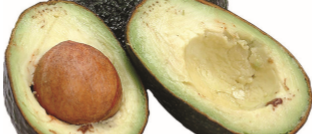by Winnie Martin
March 17, 2021 – Avocados are fruits known to protect heart health. The American Heart Association (AHA) wrote in 2015 that eating one avocado a day can slash low-density lipoprotein (LDL) or bad cholesterol levels. However, a new study has shown that avocados can also help fight type 2 diabetes. According to the October 2019 study, a fat molecule found only in avocados is responsible for this health benefit. Canadian researchers have suggested that the avocatin B molecule helps address insulin resistance. This fat molecule from avocados also improves insulin sensitivity. For the study, the researchers gave mice highfat diets for a period of two months. Avocatin B was then administered to half of the subjects twice weekly for a five-week period. Subjects given avocatin B reported an improvement in glucose tolerance, glucose utilization and insulin sensitivity. In addition, the mice given the healthy fat molecule weighed sig nificantly less compared to those that did not. The researchers also conducted a clinical trial for avocatin B using human subjects. Based on the clinical trial results, human participants tolerated the fat molecule well. Participants following a Western diet that received avocatin B reported no side effects on their kidneys, liver or muscle. While human participants who took avocatin B had reported instances of weight loss, it was insufficient for scientists to deem it statistically significant. The clinical trials on human subjects demonstrated the safety of avocatin B. The researchers plan on carrying out clinical trials to scrutinize the effect of avocatin B on people with metabolic health conditions. How does avocatin B work? The cells create energy through tiny structures called mitochondria. The mitochondria convert fatty acids to energy in a process called fatty acid oxidation. Difficulties such as insulin resistance can occur if they struggle to burn fatty acids completely
A number of earlier studies have put forward that people with diabetes and obesity are more likely to have incomplete fatty acid oxidation. Avocatin B steps in by stopping incomplete fatty acid oxidation in skeletal muscle. The molecule then increases glucose oxidation, reducing insulin resistance as a result. But the amount of avocatin B in avocados varies from fruit to fruit, and how the body extracts avocatin B from avocados remains unclear



